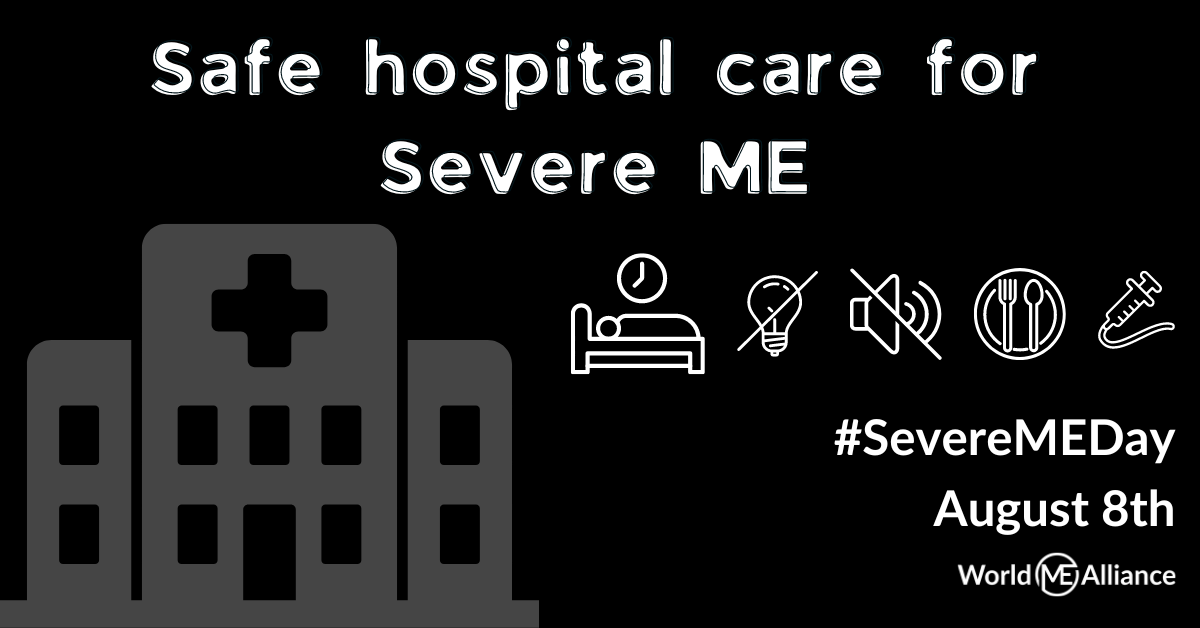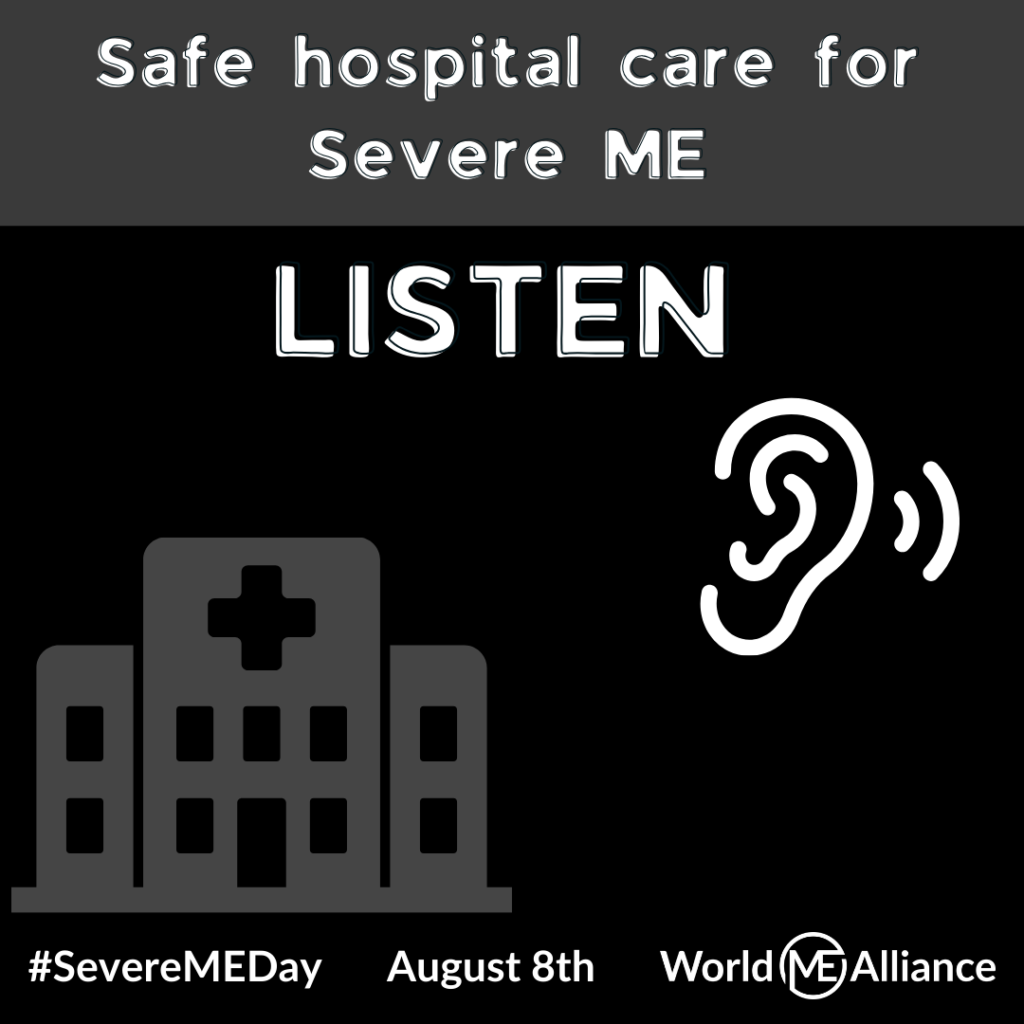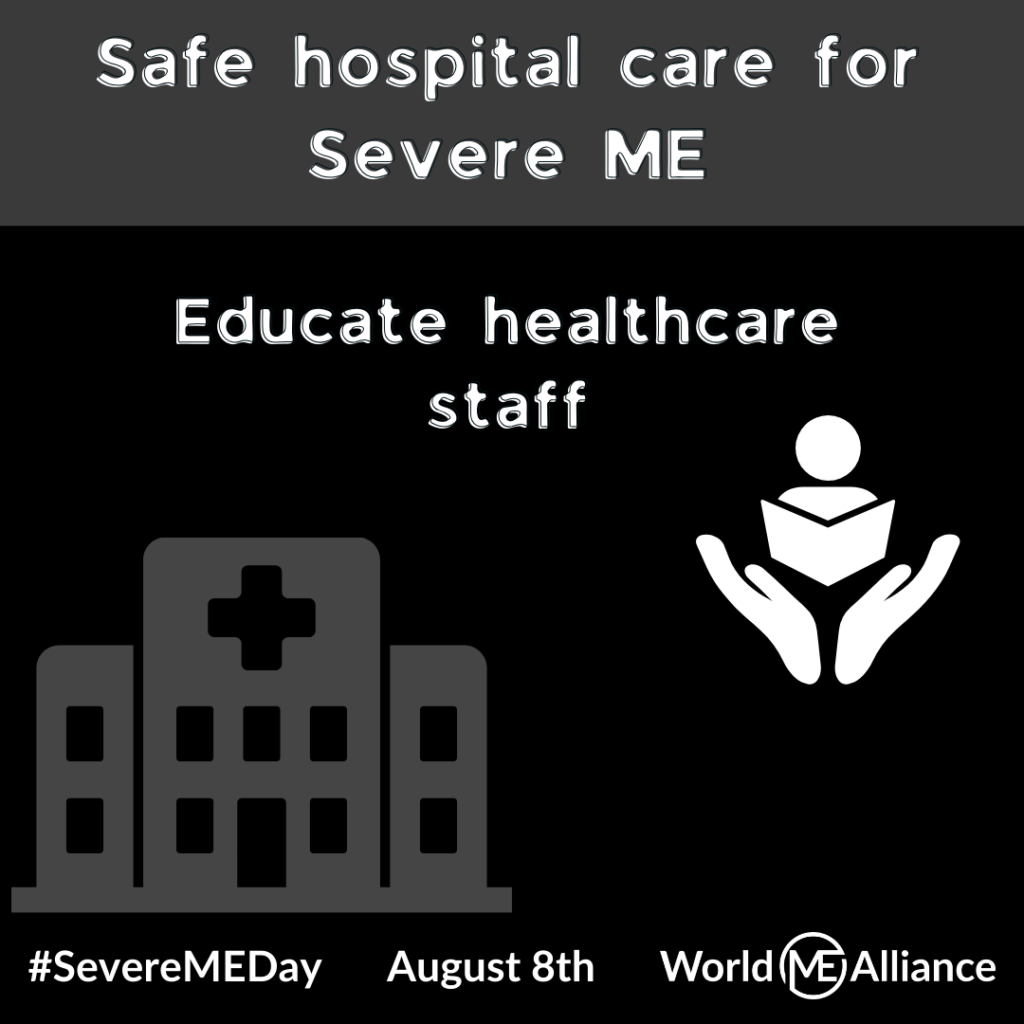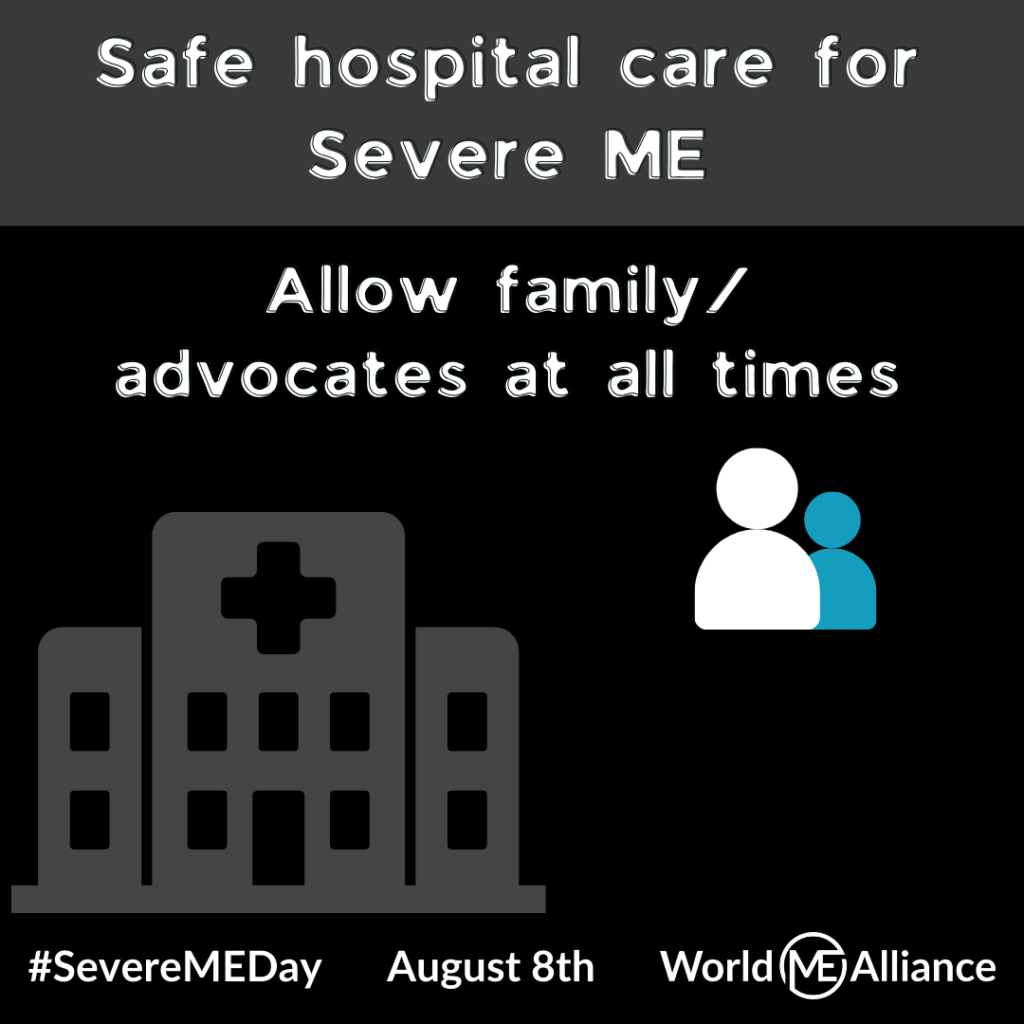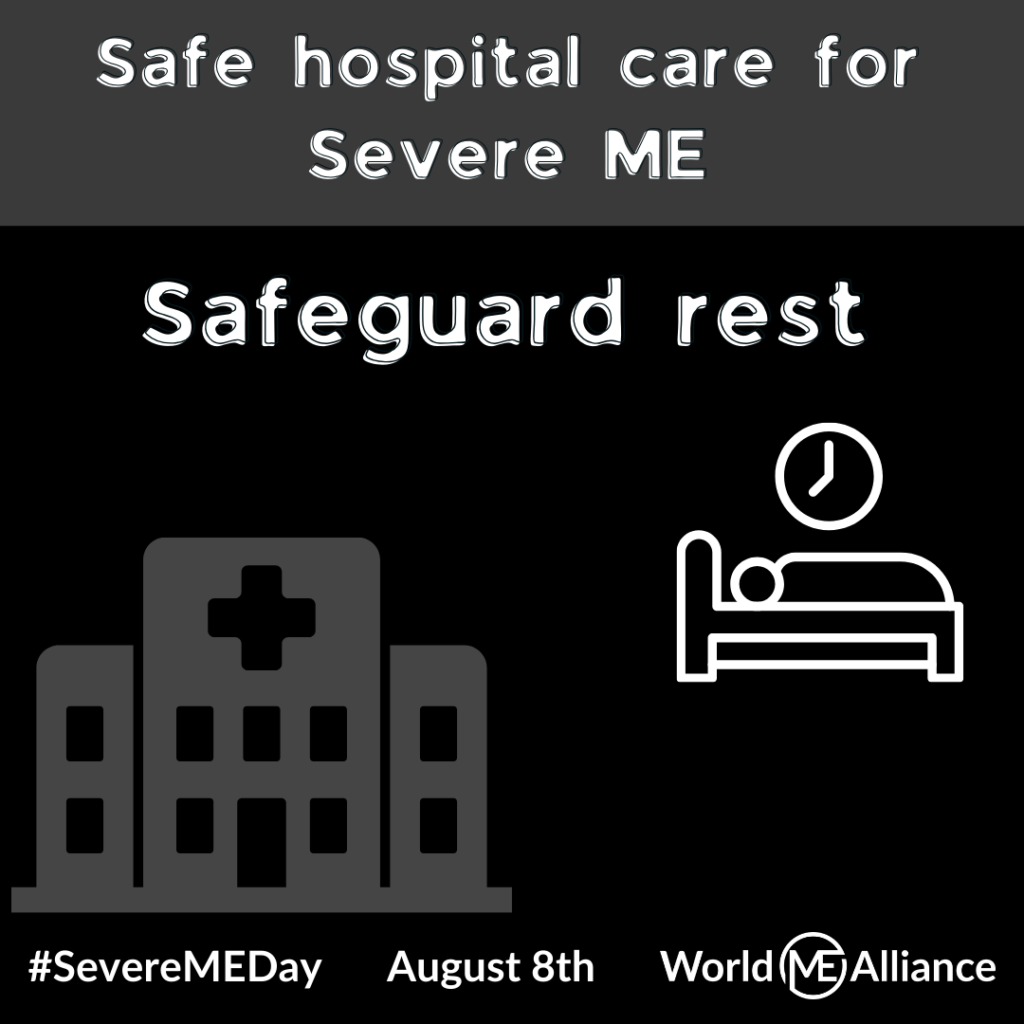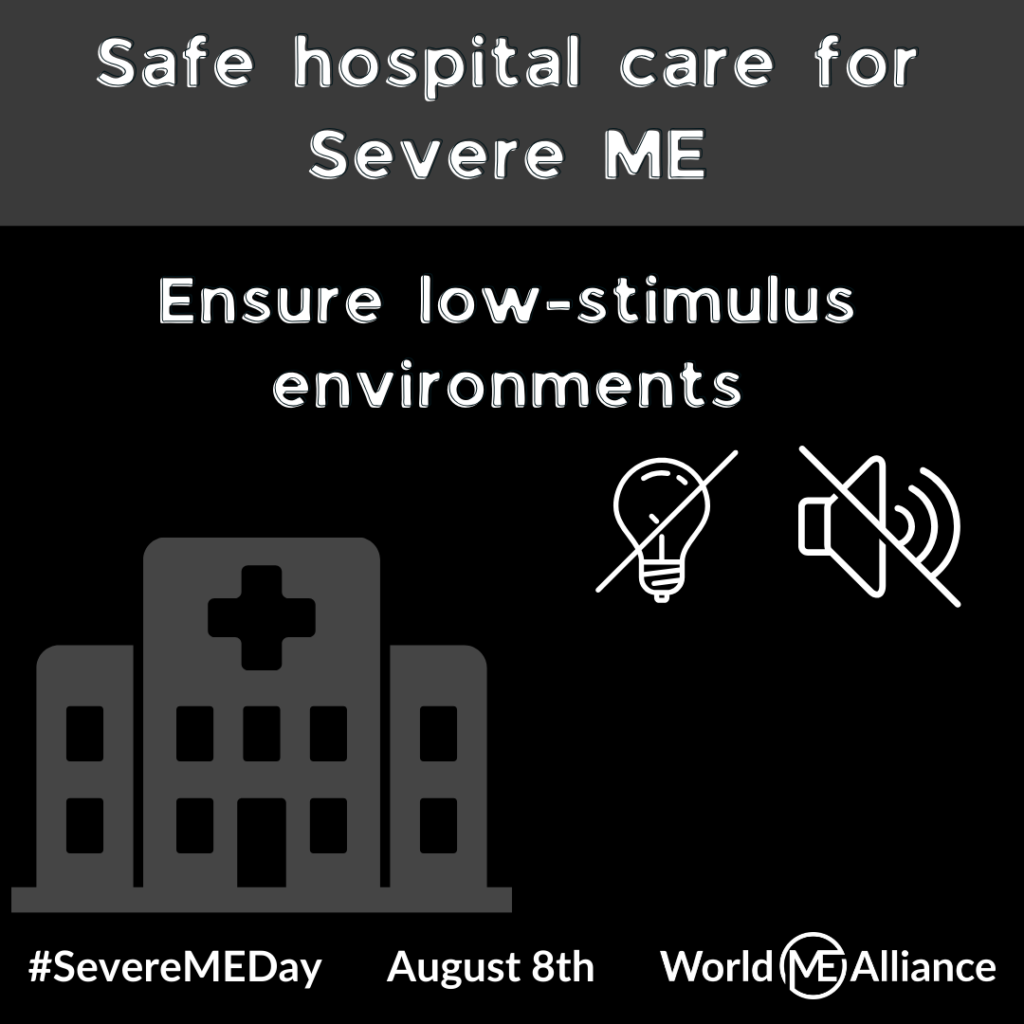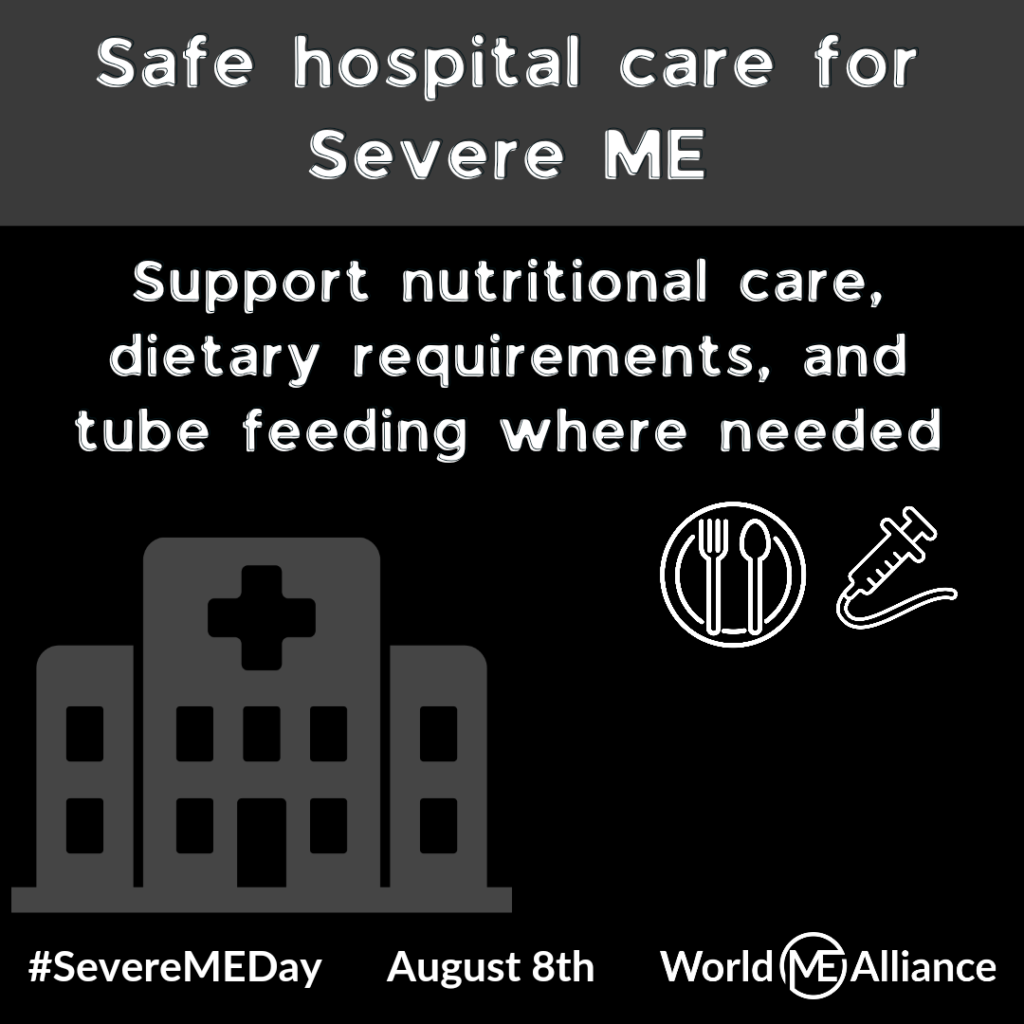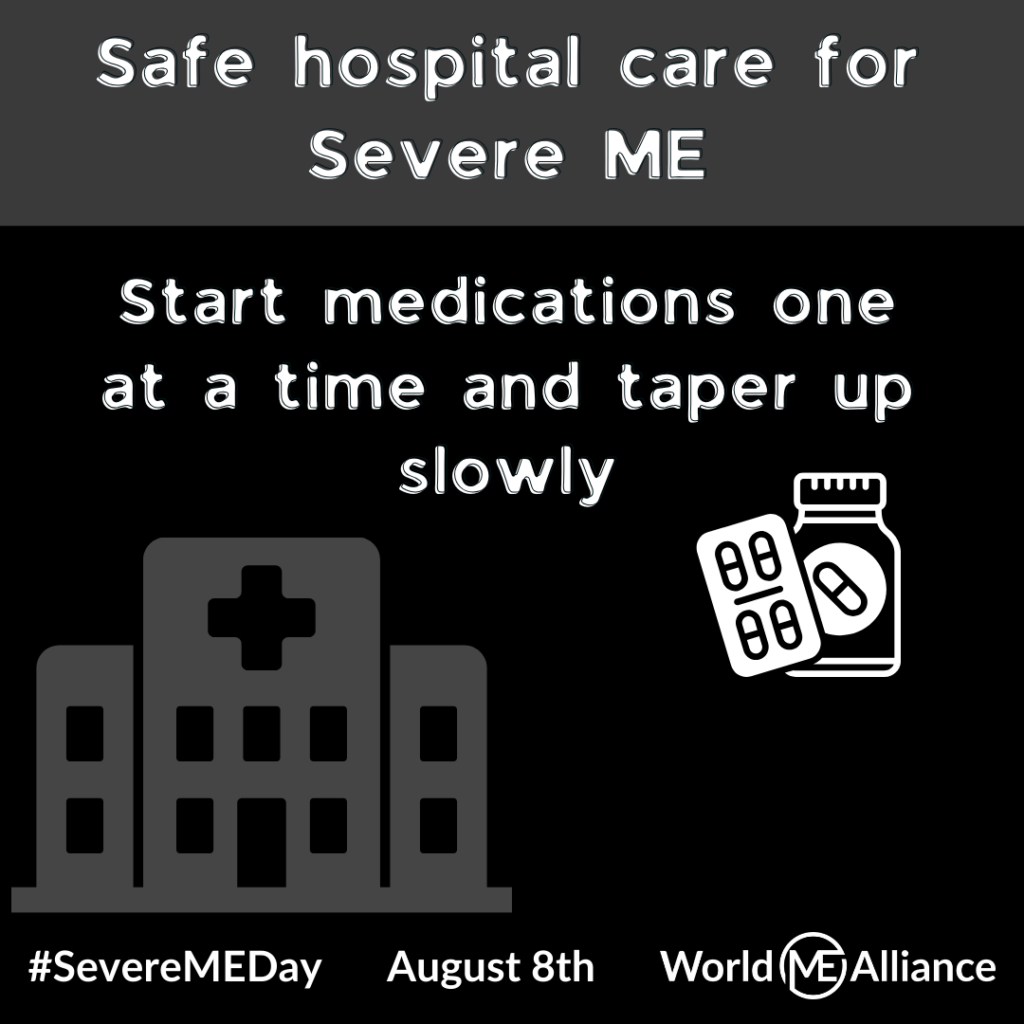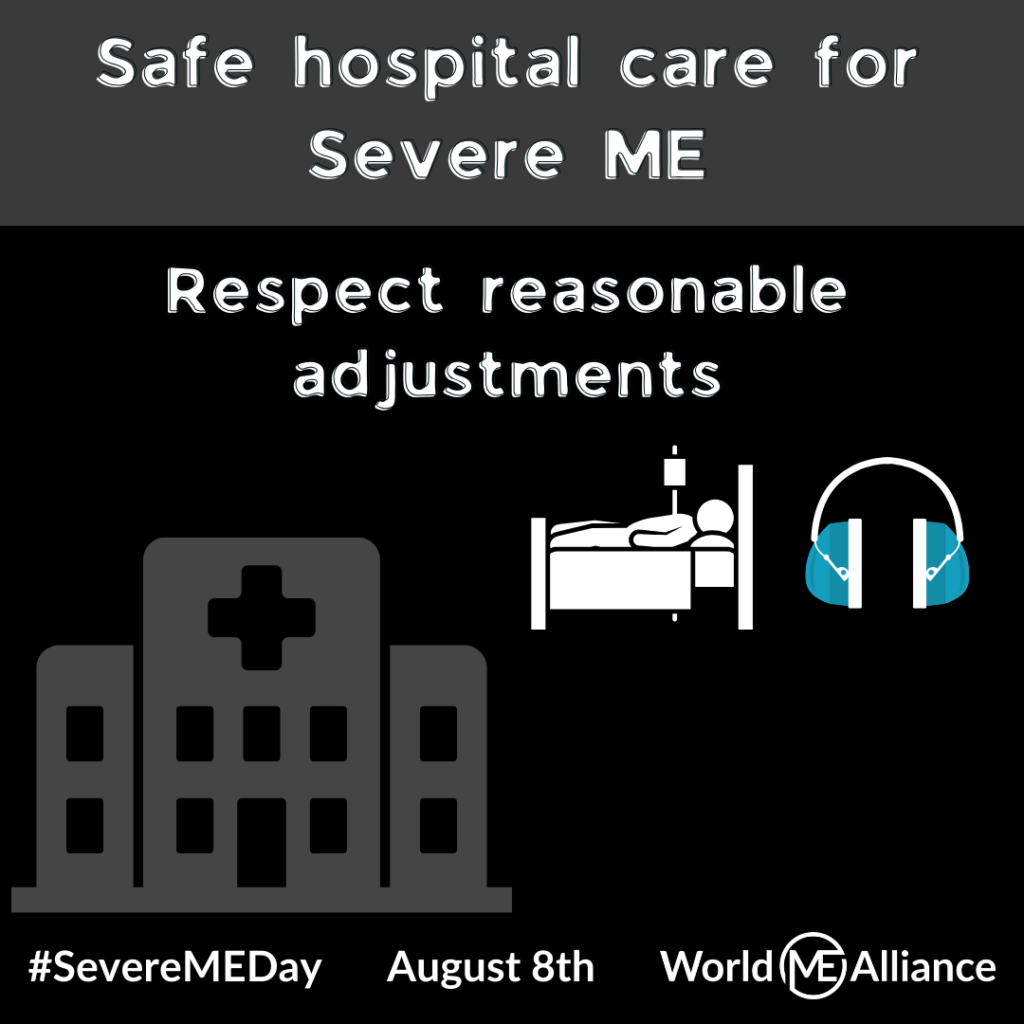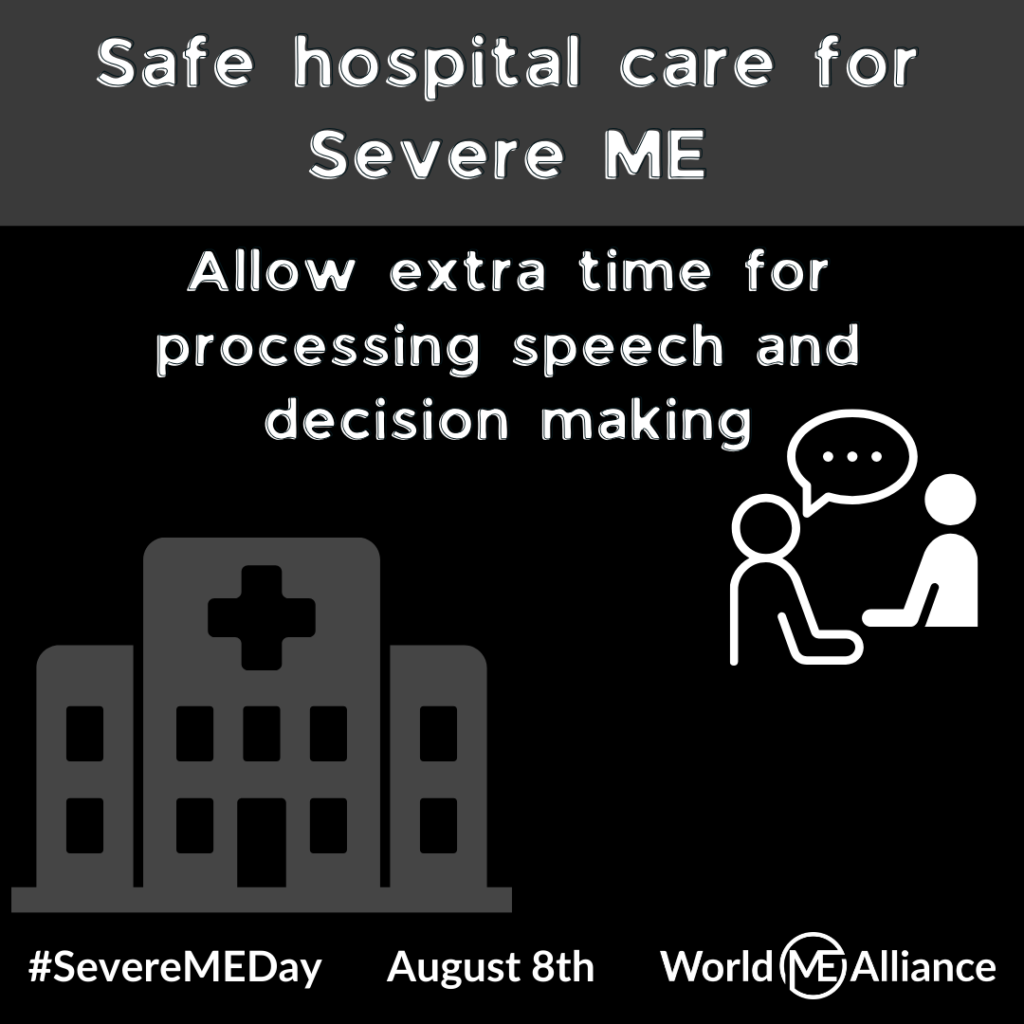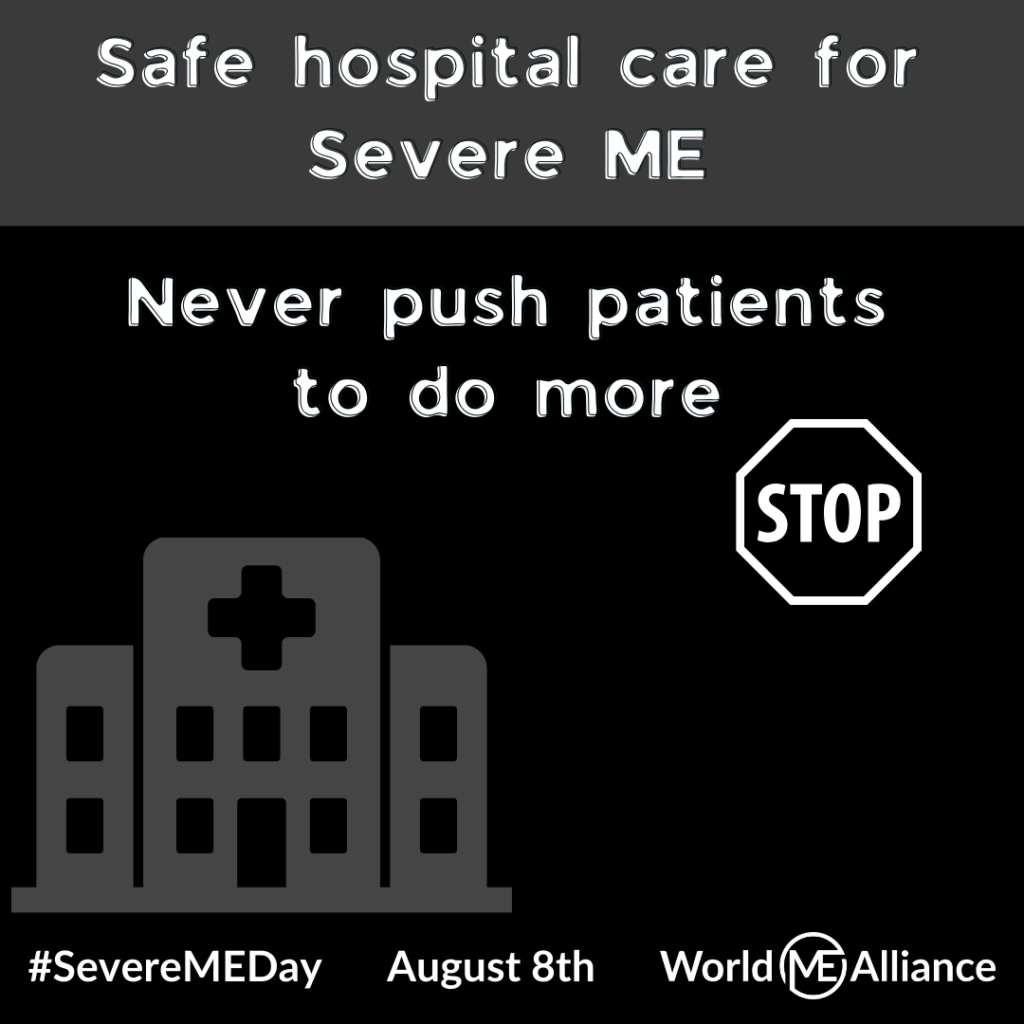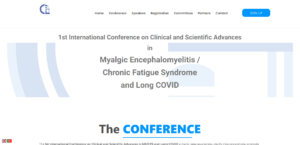Severe ME Day, held on the 8th of August each year, is a significant occasion for the World ME Alliance and the global community affected by Myalgic Encephalomyelitis (ME). This day is dedicated to shedding light on the experience of people with the most severe forms of ME enduring a life of relentless suffering in darkened rooms. The hashtag #SevereMEDay is used to amplify the voices of those with Severe and Very Severe ME, as well as honour those who have tragically lost their lives to this debilitating condition.
ME is a neurological disease with widespread dysfunction of the immune system and impaired cellular energy capacity. Severe ME has been described as a ‘living death’ because of the level of disability and suffering it causes. Severe ME patients are as ill as AIDS patients in the final weeks of life, but can survive in this state for years or decades.
The grave dangers people with Severe ME are exposed to in hospital were underlined at the recent coroner’s inquest in the UK for Maeve Boothby O’Neill. Maeve, a 27 year old woman with Severe ME and resultant malnourishment, died in Oct 2021 following 3 hospital admissions where denial of emergency nutritional care led to her terminal decline.
Current Challenges in Hospital Settings
People with Severe ME experience constant, crushing fatigue and unrelenting pain plus extreme sensitivity to stimuli such as noise and light, leaving them housebound or bedbound. All of these are exacerbated by the hallmark symptom of ME: post-exertional malaise (PEM). PEM is an acute worsening of symptoms after even minimal physical, mental, or emotional exertion. For Severe ME patients, even sensory overload (light, sound, smell, touch) can induce painful and disabling PEM that may last days, weeks, or permanently. Very Severe patients may experience periods of paralysis and are completely reliant on caregivers.
Leaving the house is such a dangerous prospect for people with Severe ME, that they will only consider going to hospital in a dire emergency. Just travelling in a car and interacting at reception could have neurological impacts that trigger a huge reduction in their quality of life for months to follow. A hospital admission is a huge risk and needs to be acknowledged as such by health authorities.
Unfortunately, most individuals with Severe ME report poor experiences in hospital settings. Stigma and misunderstanding, environmental sensitivities and inadequate care too often result in dramatically increased suffering.
Safer Hospital Care for People with Severe ME
Best practices to stop exacerbating PEM and causing unnecessary harm:
- LISTEN to ME: Listen to people with ME and their carers with lived experience of symptom management. Develop personalised care plans with family members that respect their knowledge of the patient’s unique needs. Do not ignore their requests to protect the patient from PEM. Take advice from ME specialists.
- Educate healthcare staff: Provide comprehensive training to healthcare professionals on ME, particularly the severe form of the condition, and common comorbidities. Discredited treatments CBT and GET are inappropriate for Severe patients and may cause deterioration.
- Allow advocates: Allow a family member or carer to stay at all times if requested by the patient. Obtain consent from the outset to have a family member or advocacy worker to speak on their behalf.
- Safeguard rest: Undisturbed sleep is vital to prevent decline. Respect the patient’s need for strict pacing of activities to survive hospital admission and prevent adrenaline surges. Eliminate all non-essential interaction, move slowly and quietly around the patient.
- Ensure a low-stimulus environment: Allocate private rooms that are soundproofed and dimly lit. Minimise chemical or fragrance smells, sensory overload and physical contact. Work with carers to establish sustainable temperature levels and access times.
- Support nutritional care: Recognise that people with Severe ME have acute food intolerances and may not have enough energy to swallow or digest. Allow special diet foods, flexible meal times and adjusted feeding positions. Initiate IV hydration, oral nutrition support, enteral tube feeding or parenteral nutrition where appropriate.
- Enable medication management: Most people with ME have extreme sensitivities and potential adverse reactions to drugs. Start medications one at a time and taper up slowly from a fraction of normal dose to avoid harm.
- Respect reasonable adjustments: People with Severe ME need dark glasses, headphones or earplugs and eye-masks. They usually have orthostatic intolerance and need to lie flat at all times. Many are hypermobile and hypersensitive to touch and simple movement may cause pain for weeks afterwards. Be guided by caregivers.
- Prioritise communication: It is vital to provide clear and compassionate communication with cognitively compromised patients and their families and involve them in decision-making processes. If patients can tolerate conversation, speak slowly and quietly; provide additional time for them to process information.
- BELIEVE ME: Severe ME has a much lower quality of life than cancer, stroke, MS and chronic renal failure. Patients should be treated with respect, their physiological disease recognised, and their symptoms addressed. Please don’t magnify distress with disdain or medical gaslighting.
By fostering an informed and compassionate healthcare environment, the hospital experiences and overall well-being of people with Severe ME can be substantially improved.
Alternatives to Hospital Admission
To assist Severe ME patients to avoid risking extreme PEM and baseline deterioration with unnecessary hospital admissions, the World ME Alliance calls on global medical authorities to offer remote consultations, home visits and palliative care. If hospital admission is imperative, people with energy-limiting conditions should be provided with ME-sensitive transport, dim lights and sofas to lie on in waiting rooms or a stretcher in a separate darkened room.
The onus should be on medical authorities to coordinate multi-disciplinary, connected and continuous care rather than forcing the severely ill to waste scarce energy on driving the process, risking further deterioration. There should also be an acknowledgement of intersectional challenges and poverty compounding difficulties of obtaining treatment.
Further Resources
For more detailed guidance on supporting people with ME/CFS in hospital settings, please refer to the comprehensive booklet Supporting People with ME/CFS in Hospital developed by 25% ME Group, Action for M.E., Blue Ribbon for the Awareness of ME and the ME Association based on UK guidelines.
#MEAction USA has developed a Health Information Form to help individuals clearly lay out their medical information and needs.
Finally, check out #MEAction’s Hospital Checklist to help patients with ME plan and pack for a hospital visit. With thanks to the Severe ME focus group and resources of Sammy Lincroft m.e_and_more.

